
Tags: Daniel Pauly, Dirk Zeller, faculty, marine catches, Sea Around Us, Seminars and events, sustainability
The award-winning ocean conservation film will screen at UBC on April 28, 2017. RSVP REQUIRED.

The Wall Scholars Research Award will allow Dr. Cheung to spend one year in residence at the Institute in a collaborative, interdisciplinary environment.
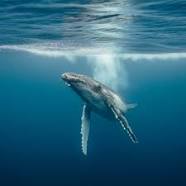
They addressed Bill S-203, An Act to amend the Criminal Code and other Acts (ending captivity of whales and dolphins), in front of the Senate Standing Committee on Fisheries and Oceans.
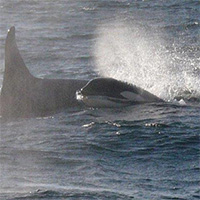
Tags: cetaceans, contaminants, faculty, killer whales, marine mammals, pollution, Stephen Raverty, whales
Bacteria including salmonella and fungi such as penicillium were found in the whales.
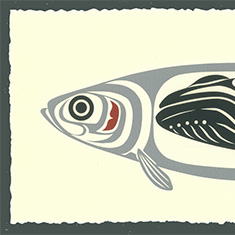
Tags: Aboriginal fisheries, Brian Hunt, faculty, fish, herring, Indigenous fisheries, IOF Research Associates, Mimi Lam, Seminars and events
This event combined art and science to raise awareness of Pacific herring’s role in BC marine ecosystems, aboriginal communities, and commercial fisheries.
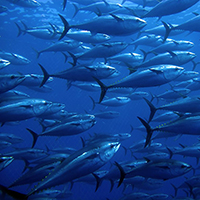
New research supports the creation of more marine reserves in the world's oceans because fish can evolve to be more cautious and stay away from fishing nets.
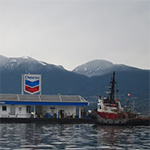
Postdoctoral and Nereus Program fellow, Vick Lam, discusses how fuel use both contributes to climate change, and in a vicious circle, climate change could also increase fuel use in fishing.
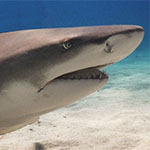
Tags: IOF students, sharks
MSc candidate Madeline Cashion hopes her research on shark fishing in the Mediterranean and Black Seas could eventually help us understand the global catch of this species.

Lucas Brotz is making a name for himself as Canada’s foremost jellyfish researcher. For the past 10 years he has studied their population dynamics and the growth of jellyfish fishing globally.
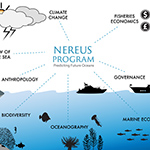
Tags: Aboriginal fisheries, Indigenous fisheries, IOF Research Associates, marine catches, Nereus Program, Yoshitaka Ota
Coastal indigenous communities eat 15 times more seafood than non-indigenous people in the same country says article from NF-UBC Nereus Program.